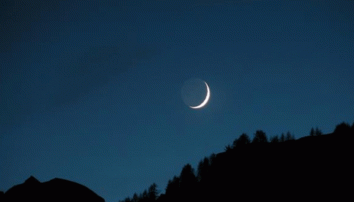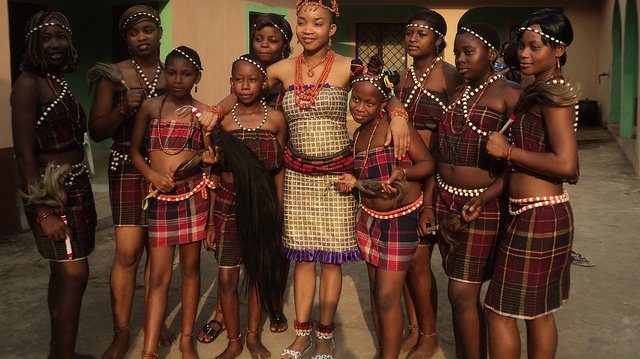Moonlight games, popularly known in the Igbo language as “Egwu onwa” is part of
the folklore of African societies. The Igbos of the ancient past instituted the culture of
playing under moonlight which was a rich source of education, entertainment, and
recreation. This was a time, many decades ago, when electronic gadgets and internet
services were non-existent in Igbo land, and children had little or no access to formal
learning. Mama Sophia interestingly reveals that:
The moonlight game is a traditional evening recreation for
youth still practiced in some places. “Onwa tibe, ije aguba
agadi” – “the crippled elders long to walk again when the
moon is out”– is a proverb that describes how much the
elders miss youthful age. The present-day form of night
worship provides adequately what were lost in the area of
African evening recreations. (148)
Egwu Onwa is a rich cultural heritage of the Igbo people enjoyed by many
generations of the Igbo societies in the time past. At the appearance of a full moon,
the euphoria and excitement are consciously and unconsciously transmitted. Even the
joy to partake in the egwu onwa propels one to finish one’s chores as quickly as
possible. Everyone partakes in these games that are gender-friendly and sensitive.
While the female folks engage in songs, dances, and games befitting their gender, the
boys delight in wrestling bouts, acrobatic displays, special stunts, dancing, and
musical performances. The elders sit in groups, around campfires, sipping and
sharing local drinks, exchanging nostalgic tales of the heroic and interesting past, and
thrill each other with mild taunts known as Njakiri. Sometimes, the elders engage the
children in moonlight tales. Adults and children benefit greatly from these practices
which hinges on communal life, harmony, peaceful co-existence, unity, the oneness
of purpose, and solidarity. Otuka Victor attests that: “Every civilization handed down
to its children from one generation to another, traditional types of games. Play itself
helps in the development of the brain. It is the vital activity that children use to learn
about and interact with their world. It is usually the work of a child in which they are
preparing themselves for adult roles and for society at large. For a child, play is the
vehicle for exploring and learning, developing new skills and connecting with others.
Through self-directed play, children follow their interests, explore the unknown, link
outcomes with choices, conquer their fears and make friends” (NP).


Today, sad enough, this beautiful culture of playing under the moonlight, Egwu
Onwa is among the neglected cultural practices among the Igbo people. This is due to
technological growth and sophisticated inventions aided by western education andacculturation that have altered the scene of our modern-day societies, eroding our
once cherished ideals and indigenous cultures.
Thank you very much for promoting igbo culture, keep up the good work.
Downvoting a post can decrease pending rewards and make it less visible. Common reasons:
Submit
Thanks dear
Downvoting a post can decrease pending rewards and make it less visible. Common reasons:
Submit